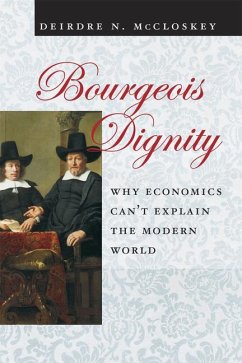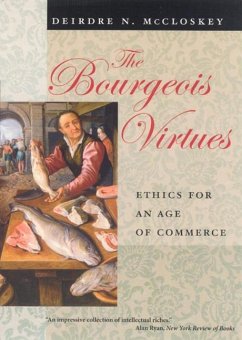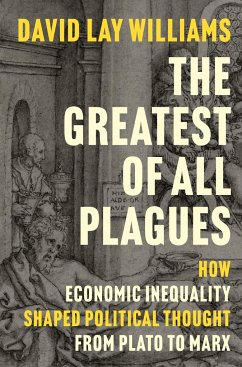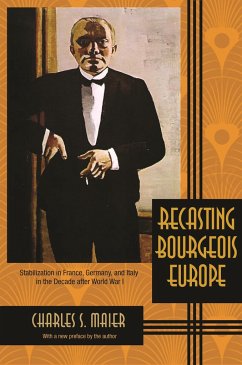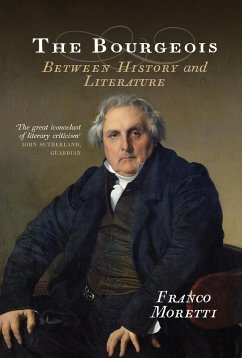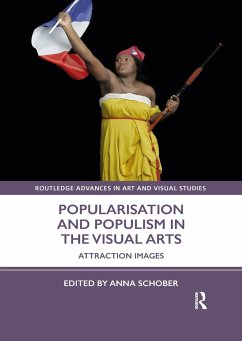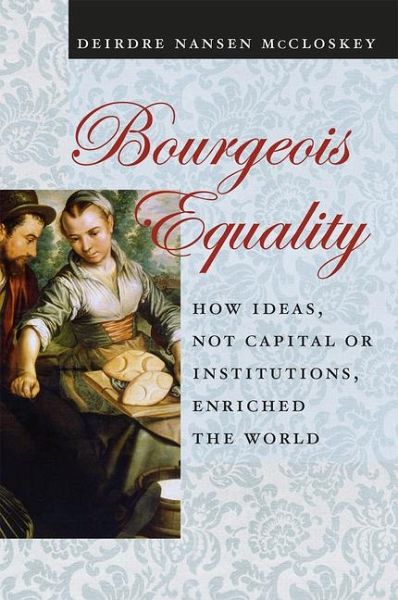
Bourgeois Equality
How Ideas, Not Capital or Institutions, Enriched the World

PAYBACK Punkte
22 °P sammeln!
The last 200 years have witnessed a 100-fold leap in well-being. Deirdre McCloskey argues that most people today are stunningly better off than their forbearers were in 1800, and that the rest of humanity will soon be. A purely materialist, incentivist view of economic change does not explain this leap. We have now the third in McCloskey's three-volume opus about how bourgeois values transformed Europe. Volume 3 nails the case for that transfiguration, telling us how aristocratic virtues of hierarchy were replaced by bourgeois virtues (more precisely, by attitudes toward virtues) that made it ...
The last 200 years have witnessed a 100-fold leap in well-being. Deirdre McCloskey argues that most people today are stunningly better off than their forbearers were in 1800, and that the rest of humanity will soon be. A purely materialist, incentivist view of economic change does not explain this leap. We have now the third in McCloskey's three-volume opus about how bourgeois values transformed Europe. Volume 3 nails the case for that transfiguration, telling us how aristocratic virtues of hierarchy were replaced by bourgeois virtues (more precisely, by attitudes toward virtues) that made it possible for ordinary folk with novel ideas to change the way people, farmed, manufactured, traveled, ruled themselves, and fought. It is a dramatic story, and joins a dramatic debate opened up by Thomas Piketty in his best-selling Capital in the 21st Century. McCloskey insists that economists are far too preoccupied by capital and saving, arguing against the position (of Piketty and most others) that capital induces a tendency to get more, that money reproduces itself, that riches are created from riches. Not so, our intrepid McCloskey shows. Bill Gates and Steve Jobs, among the biggest wealth accumulators in our era, didn't get rich through the magic of compound interest on capital. They got rich through intellectual property, creating billions of dollars from virtually nothing. Capital was no more important an ingredient to the original Apple or Microsoft than cookies or cucumbers. The debate is between those who think riches are created from riches versus those who, with McCloskey, think riches are created from rags, between those who see profits as a generous return on capital, or profits coming from innovation that ultimately benefits us all.




